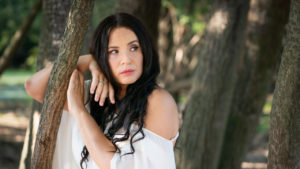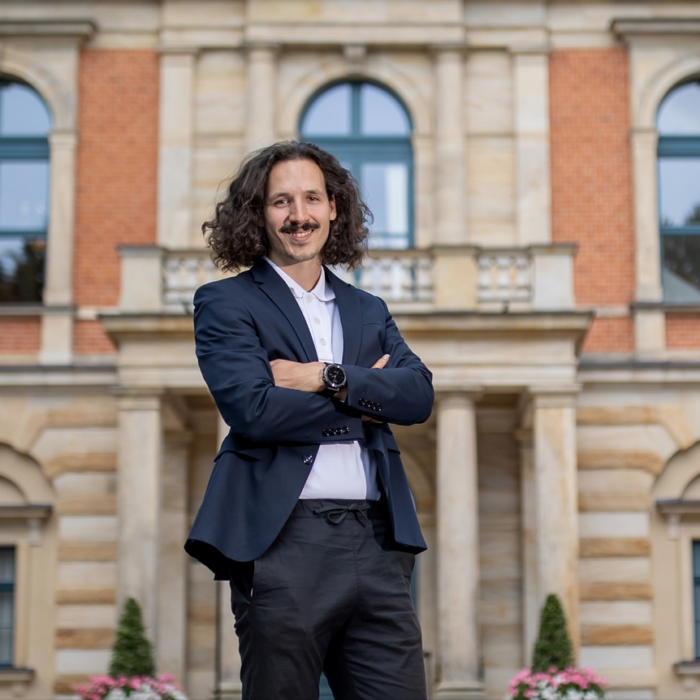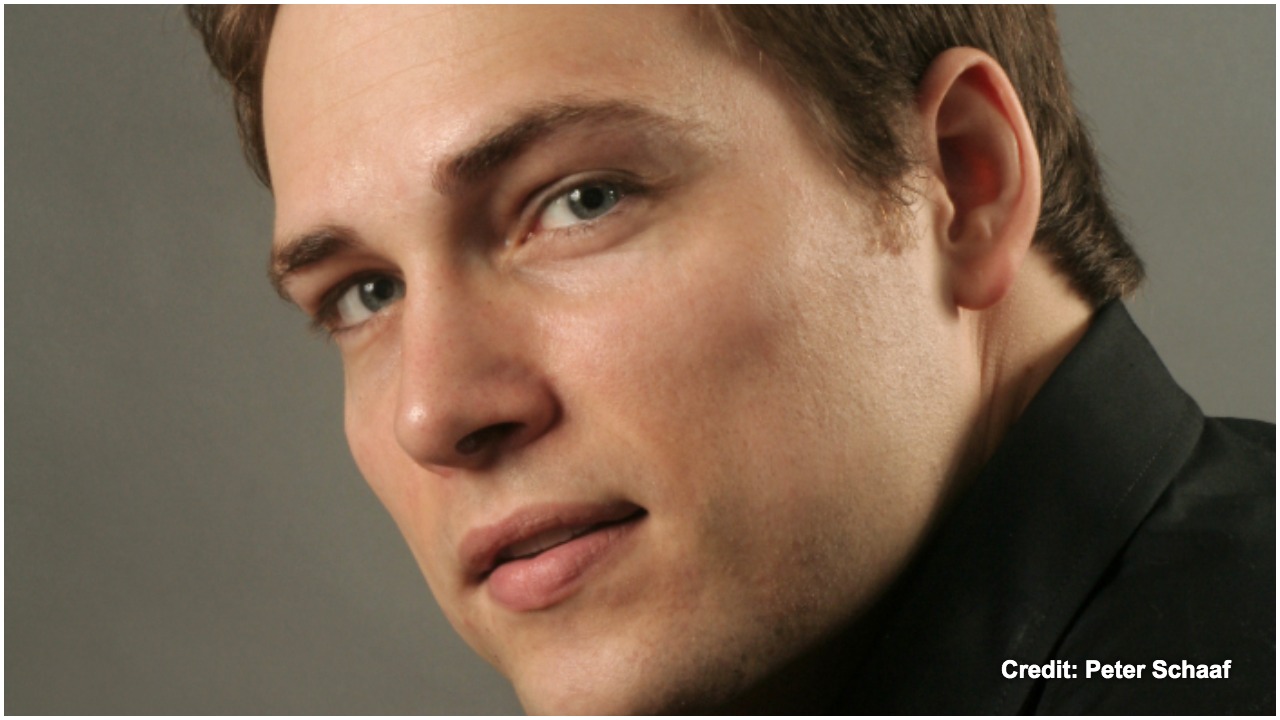
Q & A: Sonya Yoncheva on the Rebirth of the Opera Industry & Finding Her Own Freedom as an Artist
By Polina Lyapustina(Photo: Alexander Thompson)
Sonya Yoncheva has always played by her own rules. She’s never allowed anyone to box her in and has never followed a specific route.
She has championed rarely performed like “Il Pirata,” “Siberia,” and “Medea” among others throughout her career, experimenting with all kinds of directors and often arriving at some truly immersive and original interpretations of her roles. That has made her into one of the most famed and acclaimed sopranos of her generation and has allowed her to perform at the greatest theaters and with the greatest singers in the industry.
She is also a deep thinker and the past year has allowed her time to really explore and reflect on her career and the new trajectory she is taking with her new album “Rebirth.” She spoke with OperaWire about how she sees the future of the opera world, COVID-19, and her new album.
OperaWire: Over the years you have built relationships with such powerful institutions as the Metropolitan Opera, Rolex, Sony Classics, and Operalia. Tell me about those relationships and how they bring greater responsibilities?
Sonya Yoncheva: While some say, they open every door and give many opportunities, one may note that it also imposes a lot of responsibility. All these relationships were built in a very natural way. After the Operalia competition, I was accepted into a huge family of young singers under the mentorship of Plácido Domingo. And into his circle too, which felt just amazing. These people were very generous and simple in a way. To see them in real-life for me as a young singer was a special opportunity. I had the impression that Plácido Domingo himself was a huge institution, which he certainly is, but being around him felt like being a part of the family.
And so I learned that for all these connections I cherish (the Met, Rolex, and some directors), the most important thing is to keep it direct and honest. We always stay in touch, and talk about problems and support and trust each other.
OW: How did the COVID-19 crisis affect these relationships?
SY: In times of crisis, we all encourage each other. But I would also note, that it was amazing for me to see how artists supported each other everywhere in this period. We must understand one special thing here, freelance musicians rarely thought about something like it. We were totally unprepared.
At the beginning of the pandemic, my friend told me that he was about to lose everything; his career and his family. Many people lost their jobs immediately, and in a few months, they lost their belief in themselves and singing. And when I found my friend in this situation, I had to reflect on that.
I asked myself, “How can I help?” And I realized having a connection with Rolex was amazingly helpful. I came to them with my problem and shared my concerns. They were thinking the same things I was. So my ideas were welcomed, and that’s how we started the Perpetual Music series. It ended up providing more than 100 artists with the financial aid and a basic opportunity to perform again, which I guess during the first lockdown was even more important.
I understand that I live in a privileged situation and I have opportunities to help others. Today, it feels like what I want and have to do is help people get back to life and make it better.
OW: Is there anything that you find excessive about the old ways of opera in this new post-pandemic reality?
SY: Today, we see that the industry for years accepted a certain way of work, which was excessive. I’m talking about these long-lasting productions with huge budgets which we spend eight weeks rehearsing to deliver a result. And then, they are easily thrown into the garbage so easily and too soon.
I hope, this situation will force the industry to rethink the way we work and choose a more simple way. We have talent and such a diversity in the repertoire. And yet, we got used to provoking (in a very “cheap” way) to engage more people and include a younger audience. But I believe, choosing a good idea and going straight to the point without excessive decoration is better. Showing more diverse (even if smaller) productions, concentration on the amazing work of the orchestra, actors, and singers can be a great and effective way to rejuvenate the industry and involve new audiences.
I hope that artists will be more involved in production decisions. I heard “Who the hell is this girl?!” very often when I was young when I asked simple questions and gave suggestions. It’s not yet usual to ask and to listen. But I believe it is necessary to build a dialogue in the new opera world.
OW: You once said, “I believe every artist should seek — freedom and independence — in their careers.” How does it work for you?
SY: I was always very free-minded. But when I started, I was told, “You need to do it this way and no other.” Which meant I had to sing Adina, Norina, and all these “-ina’s”. But I was nervous about that. That seemed so easy to put into a matrix, which I’ve never wanted to be a part of. I knew that it was always important to think about my own feelings. And it naturally led to the moment when I broke the chain and stopped being a person others wanted me to be.
And recently, in these difficult conditions, I had time and wanted to do more. I wanted to offer a concert to my country, but there was no way to contact anyone. All the institutions were closed. There was neither money nor staff to produce the event, but I just decided to do it all by myself. Together with my friend art-manager in Bulgaria, we built this concert just in two months. We found a venue, an orchestra, and the way to invite people and media.
Taking responsibility and making decisions by myself whether it is about choosing partners or general working conditions is very inspiring. And when the concert was a success, I decided to continue. Not just for the sake of activity, but to keep this sensation of being proactive. I did not want to sit at home waiting to be invited, but to create and build a reality. I guess, there’s a lot of creative energy and ideas that came to the industry from artists during this period and moved it forward.
OW: I have always admired that creativity and for me, you were always an explorer of female nature. But your last record sounds more spiritual. It seems to live in other spheres, more pure art than life. What caused this change and how would you define “Rebirth?”
SY: When I decided to record this album about 10 years ago, I wanted to explore this part of music history. This sound was magnetic for me and I was always enchanted by it. And then, I got plenty of time last summer. I saw the pieces I chose, and they were all connected to the Renaissance, such an important period of art history.
Today we have so much to reflect on. We are living a moment, which might be hard and feels like a finish line to some people. But it is also a new beginning for others. All the songs on the record were connected to this sensation of the rebirth of the art form. There was a sense of rebirth for artists in this new reality and leaving the past behind.
I also wanted to redefine myself and show that no artist should be defined in a specific or a final way. And this was an opportunity to show you can be reborn and redefined every time you want. Many people find it arrogant, but I see it very natural for an artist. We are curious, we are dreamers, let us change!
OW: Is it challenging to stand for your artistic curiosity and right to change in the opera industry?
SY: There are so many cultures and characters in opera. Not obvious, not predictable. Medea is a good example. People asked me why I wanted to play her? For most people, she’s a monster. But there’s always so much more for the artist. It’s a chance to reflect on this character in our times, to tell her story, and even to defend her. It’s important not to miss it in the opera.
Another brilliant example is Poppea. The role I said I would never sing or play until I felt myself in her skin. And that was an amazing experience to be given the full freedom of interpretation at Salzburg.
OW: What advice would you give to female singers in the industry and what could they learn from their characters?
SY: I have sometimes heard female colleagues say things like, “I wish I had done that, but at that moment I didn’t understand the character.” Our dreams and opinions in this industry are fair and harmless, and I hope singers, especially female singers raise their voices and share their wonderful perspectives to enrich this art. They can make it even better. We should be fearless and allowed to say things as they are. It might seem shocking. But it’s the only way real collaboration in the art will happen.


